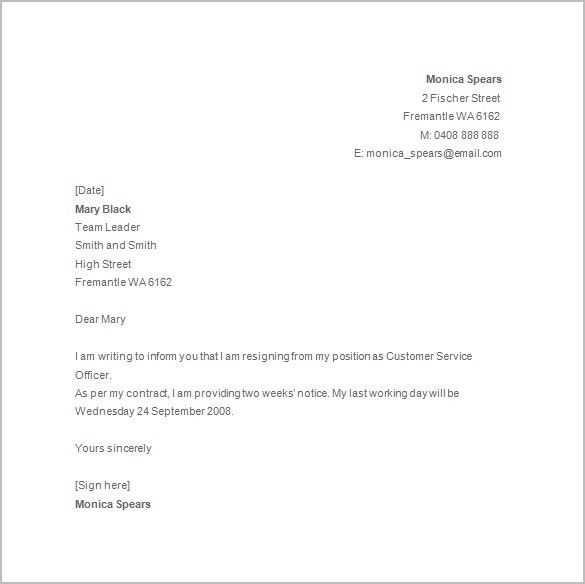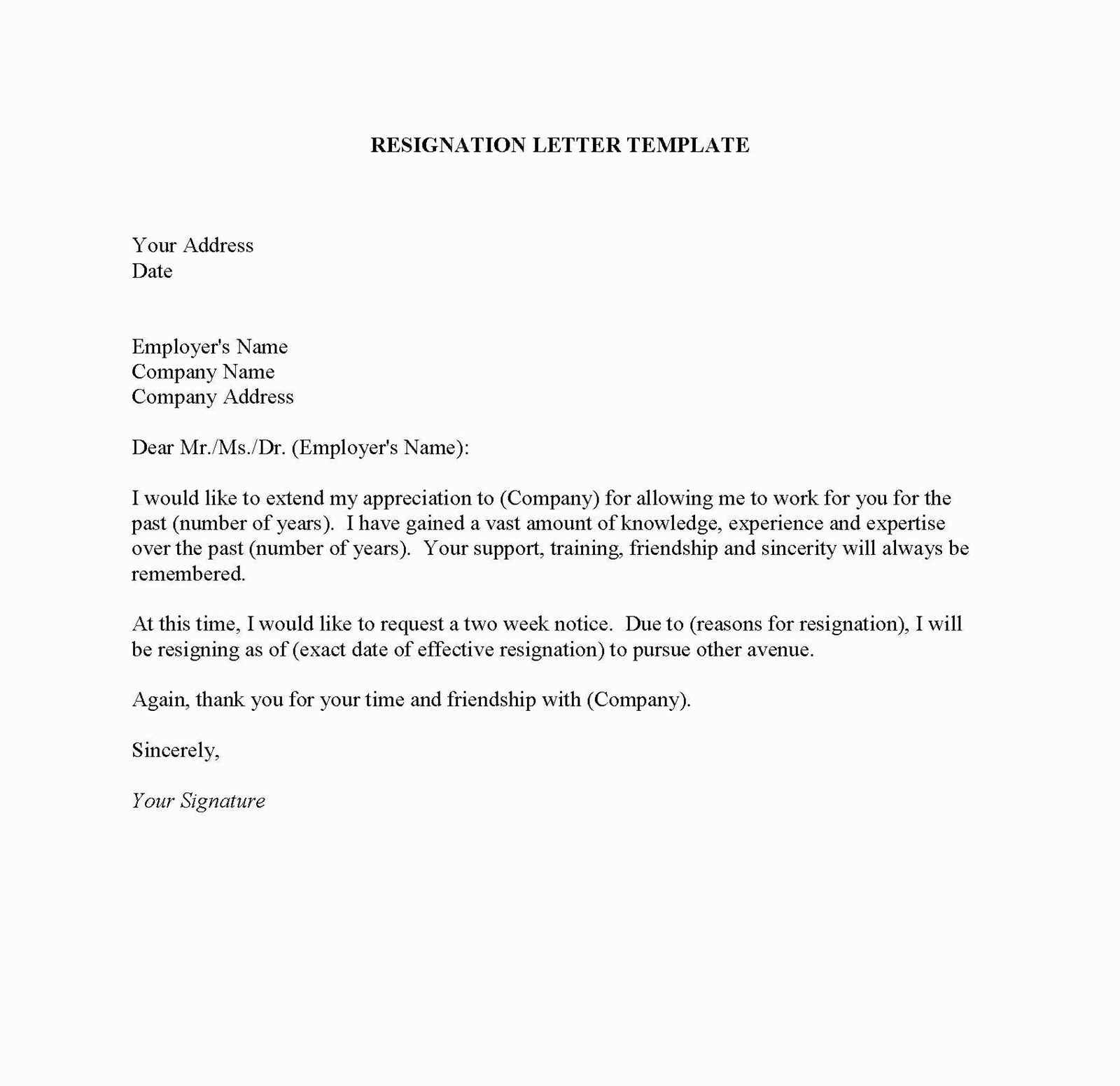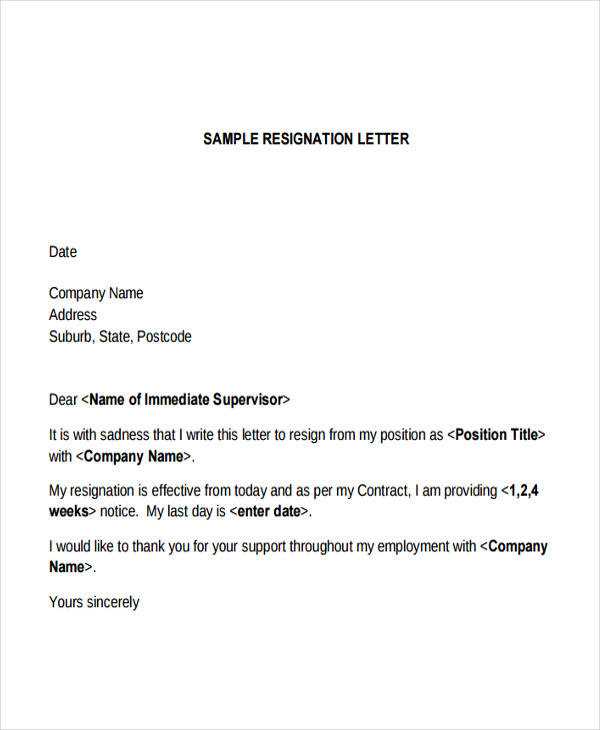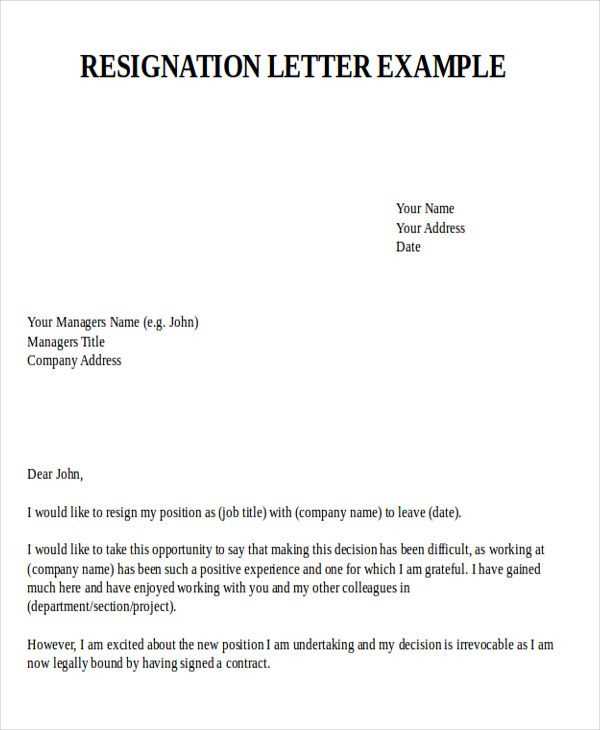Sincere Resignation Letter Template for a Graceful Exit

When the time comes to part ways with your current position, it’s important to leave on good terms. Crafting a message of departure that reflects respect and professionalism helps maintain positive relationships with colleagues and employers. This section will guide you through creating a message that expresses appreciation while also providing the necessary details for a smooth transition.
Key Elements of a Thoughtful Departure Message

A well-constructed farewell note includes several key components. These elements ensure that the message is clear, polite, and professional.
- Gratitude: Start by thanking your employer for the opportunity and experiences gained during your time in the role.
- Reason for Leaving: Briefly mention why you’re moving on, but keep it positive and professional.
- Offer Assistance: Show your willingness to help with the transition by offering to train a replacement or assist with outstanding tasks.
- Well Wishes: End with well wishes for the company’s continued success and for your colleagues’ futures.
Crafting the Beginning of Your Message
The opening paragraph sets the tone for the rest of your message. It should be concise and clear, without being overly emotional or too detailed. A simple thank you for the opportunity and a mention of your decision to move forward are sufficient.
Maintaining a Professional Tone Throughout
Throughout your message, it’s crucial to remain courteous and respectful. Avoid any negative comments or complaints about your job, the company, or your colleagues. A positive and forward-looking attitude ensures you leave a lasting, professional impression.
Common Mistakes to Avoid
- Being too vague: Avoid being overly general. Specificity helps convey your appreciation and professionalism.
- Over-explaining: There’s no need to provide detailed reasons for your departure. Keep it short and respectful.
- Leaving out essential details: Ensure your message includes necessary logistics, such as your last working day and any transition plans.
When to Send Your Farewell Message
Timing is important. Send your message well in advance of your final day, giving your employer and team enough time to prepare for your departure. Ideally, provide notice as per your contract or company policy.
Why Write a Thoughtful Farewell Note

Leaving your job on good terms is essential for your professional reputation. A well-crafted farewell message reflects your appreciation for the time spent and the experiences gained, while ensuring a smooth transition for both you and the organization. This section will explore why it’s important to write a respectful message, outline the key components to include, and highlight common pitfalls to avoid during the process.
Key Elements of a Departure Document
Every formal exit message should contain essential elements to maintain a professional tone. Begin by expressing gratitude for the opportunity, mentioning the positive aspects of your experience. A brief explanation of your decision to leave is often appropriate, but focus on the positive. Offer assistance during the transition period, and conclude with well-wishes for the future of the organization.
How to Begin Your Farewell Message

The first paragraph sets the tone of your communication. Begin with a clear and concise statement of your decision to move on, followed by a thank you for the chance to contribute to the company. The start should be brief but impactful, leaving a positive impression without over-explaining your reasons for departure.
Maintaining Professionalism in Your Message
It’s crucial to maintain a respectful and courteous tone throughout. Avoid negative language or discussing issues that led to your departure. Keeping the tone positive ensures that your departure doesn’t tarnish your professional image or relationships within the company. Show appreciation for your colleagues and management, regardless of the circumstances surrounding your decision.
Common Errors to Avoid When Leaving a Job
When crafting your farewell, steer clear of a few common mistakes. Don’t include unnecessary details or negativity, as this could leave a bad impression. Also, avoid over-explaining your reasons for leaving. It’s important to remain focused on professionalism, rather than delving into personal grievances. Lastly, ensure that all important details, such as your final day, are included to facilitate a smooth transition.
When to Submit Your Formal Farewell
Submit your message at an appropriate time, ideally once you’ve made your decision and are ready to inform your employer. Be sure to give enough notice in advance of your final day, in accordance with company policy or your contract. Timely communication allows the company to make necessary arrangements for your departure, ensuring a professional transition for all parties involved.